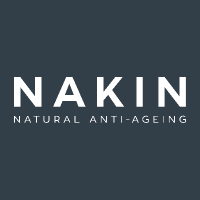Why Retinol Can be Irritating to Skin

Retinol is probably one of the most common words in the anti-ageing skincare field and it appears in thousands of products. It is a powerful anti-ageing ingredient, however, it does have its drawbacks as it can be irritating to lots of people. In fact, many people will never be able to use it due to the irritation that it causes. This is a massive red flag for us at Nakin and so we never use it in our anti-ageing face products. Instead, we use lots of other amazing natural actives.
Retinol is a synthetic ingredient and at Nakin we prefer to use natural ingredients for rejuvenation. Instead of retinol we use a plant peptide derived from hibiscus extract. Peptides are widely known as the next best alternative to retinol and we use our peptide in our Performance Face Serum and Eye Cream Complex to ensure that the full face area can be treated with it. We find that natural actives are so much kinder to skin. We accept that the effect may not be as dramatic, but plant actives do not disrupt the skin barrier and we believe they are better for long-term skin health.
Retinol, a derivative of vitamin A, is renowned for its anti-ageing and skin-rejuvenating properties. However, it can be irritating to the skin for several reasons. Its potency increases cell turnover, which, while beneficial for revealing fresh, new skin, can lead to dryness, peeling, and irritation. Additionally, retinol can disrupt the skin's natural barrier function, making it more susceptible to environmental stressors. For those with sensitive skin or conditions such as eczema or rosacea, this disruption can exacerbate symptoms.
In skincare, retinol is known for its ability to stimulate collagen production and improve skin elasticity, resulting in a smoother and more youthful appearance. It also helps to reduce the appearance of fine lines, wrinkles, and dark spots by increasing cell turnover and promoting new cell growth.
However, as mentioned, retinol can be harsh on the skin and can lead to dryness or peeling. Despite its popularity in skincare, there are compelling reasons to exercise caution with retinol. This vitamin A derivative, whilst effective at reducing signs of ageing and acne, can also lead to skin irritation, redness, and peeling, particularly in sensitive individuals or when used excessively.
One such alternative is natural anti-ageing skincare like ours that uses plant-based ingredients which can often be hailed as the natural alternative to retinol. Like retinol, good plant actives also boast skin-renewing properties and have shown promising results in reducing fine lines and wrinkles. However, unlike retinol, natural cosmetic ingredients do not cause irritation, making it a safer option for those with sensitive skin. Additionally, many plant ingredients have been found to have anti-inflammatory properties, making them an ideal choice to calm and nourish skin.


Leave a comment